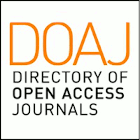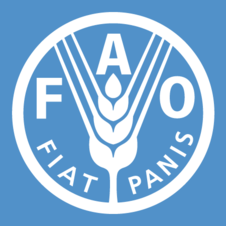Bromelain and its therapeutic applications in the human gastrointestinal system: a scoping review.
DOI:
https://doi.org/10.29105/respyn21.2-5Keywords:
Bromelain, Gastrointestinal diseases, NutraceuticalAbstract
Resumen en español
Introducción: La bromelina se ha utilizado con fines terapéuticos desde el siglo XIX. Se han reportado distintos estudios que mostraron resultados favorables para el sistema gastrointestinal tanto in vitro como en animales e incluso en humanos. Objetivo: Desarrollar una revisión de alcance actualizada considerando los últimos 21 años de investigación para la descripción del uso terapéutico gastrointestinal de la bromelina en humanos, animales e in vitro. Método: Se realizó una revisión exploratoria (scoping review) con base en los requerimientos de PRISMA para este tipo de revisiones. La búsqueda sistemática se llevó a cabo en las bases de datos PubMed, ScienceDirect, Scopus, Google Académico, Springer Link y Wiley de estudios publicados entre el 2000-2021. Resultados: Se encontraron 13 artículos, 5 ensayos clínicos, 4 en animales y 4 in vitro. Los resultados significativos encontrados fueron para vaciamiento gástrico, analgésica, antiácido, anticancerígena, antiestreñimiento, antiinflamatoria e inmunomoduladora, prebiótica y probiótica. Conclusiones: El potencial terapéutico de la bromelina es prometedor, solo se requiere incrementar al cantidad y calidad de la evidencia, realizando más ensayos con metodología apropiada para estudios clínicos.
Palabras clave: Bromelina; Enfermedades Gastrointestinales; Nutracéutico.
Resumen en inglés
Background: The bromelain has been used for therapeutical purposes since the 19th century. Different studies have been reported the use of this proteolytic enzyme with favorable effects for the gastrointestinal system both in vitro and in animals and even in humans. Objective: Develop an updated scoping review considering the last 21 years of research for the description of the gastrointestinal therapeutic use of bromelain in humans, animals, and In-vitro. Material and methods: An exploratory review (scoping review) was carried out based on the requirements of (PRISMA) for this type of review. The systematic search was in six electronic databases PubMed, ScienceDirect, Scopus, Google Scholar, Springer Link, and Wiley; of studies published between 2000-2021. Results: 13 publications including 5 clinical trials, 4 in animals, and 4 in-vitro studies were eligible. Significant results were found for the following activities: gastric emptying, analgesic, antacid, anticancer, anti-constipation, anti-inflammatory, immunomodulatory, prebiotic and probiotic. Conclusions: The therapeutic potential of bromelain is promising, it is only required to increase the quantity and quality of the evidence, carrying out more trials with appropriate methodology for clinical studies.
Keywords: Bromelain; Gastrointestinal diseases; Nutraceutical.
Downloads
References
Abbas, S., Shanbhag, T., & Kothare, A. (2020). Applications of bromelain from pineapple waste towards acne. Saudi Journal of Biological Sciences, 28(1), 1001–1009. https://doi.org/10.1016/j.sjbs.2020.11.032 DOI: https://doi.org/10.1016/j.sjbs.2020.11.032
Altinbas, A., Aktas, B., Yilmaz, B., Ekiz, F., Deveci, M., Basar, O., Simsek, Z., Coban, S., Tuna, Y., Uyar, M. F., & Yuksel, O. (2013). Adding pineapple juice to a polyethylene glycol-based bowel cleansing regime improved the quality of colon cleaning. Annals of Nutrition and Metabolism, 63(1–2), 83–87. https://doi.org/10.1159/000354094 DOI: https://doi.org/10.1159/000354094
Amini, A., Ehteda, A., Masoumi, S., Moghaddam, Akhter, J., Pillai, K., & Morris, D. L. (2013). Cytotoxic effects of bromelain in human gastrointestinal carcinoma cell lines (MKN45, KATO-III, HT29-5F12, and HT29-5M21). OncoTargets and Therapy, 6, 403–409. https://doi.org/10.2147/OTT.S43072 DOI: https://doi.org/10.2147/OTT.S43072
Arefin, P., Habib, S., Arefin, A., & Arefin, S. (2020). A review of clinical uses of bromelain and concerned purification methods to obtain its pharmacological effects efficiently. International Journal of Pharmaceutical Research, 12(July), 469–478. https://doi.org/10.31838/ijpr/2020.SP1.066 DOI: https://doi.org/10.31838/ijpr/2020.SP1.066
Begum, M., Li, H. L., Hossain, M. M., & Kim, I. H. (2015). Dietary bromelain-C.3.4.22.32 supplementation improves performance and gut health in sows and piglets. Livestock Science, 180, 177–182. https://doi.org/10.1016/j.livsci.2015.07.013 DOI: https://doi.org/10.1016/j.livsci.2015.07.013
Bhattacharyya, B. K. (2008). Bromelain: An overview. Indian Journal of Natural Products and Resources, 7(4), 359–363. http://nopr.niscair.res.in/handle/123456789/5694
Campos, D. A., Coscueta, E. R., Vilas-Boas, A. A., Silva, S., Teixeira, J. A., Pastrana, L. M., & Pintado, M. M. (2020). Impact of functional flours from pineapple by-products on human intestinal microbiota. Journal of Functional Foods, 67(January), 103830. https://doi.org/10.1016/j.jff.2020.103830 DOI: https://doi.org/10.1016/j.jff.2020.103830
Chaudhary, V., Kumar, V., Singh, K., Kumar, R., Kumar, V., & Vipul Chaudhary, C. (2019). Pineapple (Ananas cosmosus) product processing: A review. Journal of Pharmacognosy and Phytochemistry, 8(3), 4642–4652. http://apps.fao.org
de la Barrera-Núñez, M. del C., Yáñez-Vico, R. M., Batista-Cruzado, A., Heurtebise-Saavedra, J. M., de Oyagüe, R. C., & Torres-Lagares, D. (2014). Prospective double-blind clinical trial evaluating the effectiveness of bromelain in the third molar extraction postoperative period. Medicina Oral, Patologia Oral y Cirugia Bucal, 19(2), 157–162. https://doi.org/10.4317/medoral.19105 DOI: https://doi.org/10.4317/medoral.19105
Fass, R., Boeckxstaens, G. E., El-Serag, H., Rosen, R., Sifrim, D., & Vaezi, M. F. (2021). Gastro-oesophageal reflux disease. Nature Reviews Disease Primers, 7(1). https://doi.org/10.1038/s41572-021-00287-w DOI: https://doi.org/10.1038/s41572-021-00287-w
Ford, A. C., Sperber, A. D., Corsetti, M., & Camilleri, M. (2020). Irritable bowel syndrome. The Lancet, 396(10263), 1675–1688. https://doi.org/10.1016/S0140-6736(20)31548-8 DOI: https://doi.org/10.1016/S0140-6736(20)31548-8
Fox, R. K., & Muniraj, T. (2016). Pharmacologic Therapies in Gastrointestinal Diseases. Medical Clinics of North America, 100(4), 827–850. https://doi.org/10.1016/j.mcna.2016.03.009 DOI: https://doi.org/10.1016/j.mcna.2016.03.009
Giridhar, V. U. (2016). Role of nutrition in oral and maxillofacial surgery patients. National Journal of Maxillofacial Surgery, 7(1), 3–9. https://doi.org/10.4103/0975-5950.196146 DOI: https://doi.org/10.4103/0975-5950.196146
Hale, L. P. (2004). Proteolytic activity and immunogenicity of oral bromelain within the gastrointestinal tract of mice. International Immunopharmacology, 4(2), 255–264. https://doi.org/10.1016/j.intimp.2003.12.010 DOI: https://doi.org/10.1016/j.intimp.2003.12.010
Huerta-Iga, F., Bielsa-Fernández, M. V., Remes-Troche, J. M., Valdovinos-Díaz, M. A., & Tamayo-de la Cuesta, J. L. (2016). Diagnóstico y tratamiento de la enfermedad por reflujo gastroesofágico: recomendaciones de la Asociación Mexicana de Gastroenterología. Revista de Gastroenterologia de Mexico, 81(4), 208–222. https://doi.org/10.1016/j.rgmx.2016.04.003 DOI: https://doi.org/10.1016/j.rgmx.2016.04.003
Islam, M. Z., Tabassum, S., Harun-ur-Rashid, M., Vegarud, G. E., Alam, M. S., & Islam, M. A. (2021). Development of probiotic beverage using whey and pineapple (Ananas comosus) juice: Sensory and physico-chemical properties and probiotic survivability during in-vitro gastrointestinal digestion. Journal of Agriculture and Food Research, 4(November 2020), 100144. https://doi.org/10.1016/j.jafr.2021.100144 DOI: https://doi.org/10.1016/j.jafr.2021.100144
Khan, E. (2020). Medications Used for the Gastrointestinal System BT - Understanding Pharmacology in Nursing Practice (P. Hood & E. Khan (eds.); pp. 319–344). Springer International Publishing. https://doi.org/10.1007/978-3-030-32004-1_11 DOI: https://doi.org/10.1007/978-3-030-32004-1_11
Kringel, D. H., Dias, A. R. G., Zavareze, E. da R., & Gandra, E. A. (2020). Fruit Wastes as Promising Sources of Starch: Extraction, Properties, and Applications. Starch/Staerke, 72(3–4). https://doi.org/10.1002/star.201900200 DOI: https://doi.org/10.1002/star.201900200
Maurer, H. R. (2001). Bromelain: biochemistry, pharmacology and medical use. Cellular and Molecular Life Sciences CMLS, 58(9), 1234–1245. https://doi.org/10.1007/PL00000936 DOI: https://doi.org/10.1007/PL00000936
Mohd Ali, M., Hashim, N., Abd Aziz, S., & Lasekan, O. (2020). Pineapple (Ananas comosus): A comprehensive review of nutritional values, volatile compounds, health benefits, and potential food products. Food Research International, 137(July), 109675. https://doi.org/10.1016/j.foodres.2020.109675 DOI: https://doi.org/10.1016/j.foodres.2020.109675
Murthy, K. S. (2006). Signaling for contraction and relaxation in smooth muscle of the gut. Annual Review of Physiology, 68, 345–374. https://doi.org/10.1146/annurev.physiol.68.040504.094707 DOI: https://doi.org/10.1146/annurev.physiol.68.040504.094707
Page, M. J., McKenzie, J. E., Bossuyt, P. M., Boutron, I., Hoffmann, T. C., Mulrow, C. D., Shamseer, L., Tetzlaff, J. M., Akl, E. A., Brennan, S. E., Chou, R., Glanville, J., Grimshaw, J. M., Hróbjartsson, A., Lalu, M. M., Li, T., Loder, E. W., Mayo-Wilson, E., McDonald, S., … Moher, D. (2021). The PRISMA 2020 statement: an updated guideline for reporting systematic reviews. BMJ, 372. https://doi.org/10.1136/bmj.n71 DOI: https://doi.org/10.1136/bmj.n71
Pavan, R., Jain, S., Shraddha, & Kumar, A. (2012). Properties and Therapeutic Application of Bromelain: A Review. Biotechnology Research International, 2012, 1–6. https://doi.org/10.1155/2012/976203 DOI: https://doi.org/10.1155/2012/976203
Pellicano, R., Strona, S., Simondi, D., Reggiani, S., Pallavicino, F., Sguazzini, C., Bonagura, A. G., Rizzetto, M., & Astegiano, M. (2009). Benefit of dietary integrators for treating functional dyspepsia: a prospective pilot study. Minerva Gastroenterologica e Dietologica, 55(3), 227–235.
Pérez-Martínez, I., Rodrigo, L., & Lucendo, A. J. (2018). Eosinophilic esophagitis: An evidenced-based approach to diagnosis and treatment. Medicina Clinica, 152(11), 444–449. https://doi.org/10.1016/j.medcli.2018.10.022 DOI: https://doi.org/10.1016/j.medcle.2019.04.011
Polanco Allué, I. (2015). Microbiota y enfermedades gastrointestinales. Anales de Pediatría, 83(6), 443.e1-443.e5. https://doi.org/https://doi.org/10.1016/j.anpedi.2015.07.034 DOI: https://doi.org/10.1016/j.anpedi.2015.07.034
Raeisi, E., Aazami, M. H., Aghamiri, S. M. R., Satari, A., Hosseinzadeh, S., Lemoigne, Y., & Heidarian, E. (2020). Bromelain-based chemo-herbal combination effect on human cancer cells: In-vitro study on AGS and MCF7 proliferation and apoptosis. Current Issues in Pharmacy and Medical Sciences, 33(3), 155–161. https://doi.org/10.2478/cipms-2020-0028 DOI: https://doi.org/10.2478/cipms-2020-0028
Ramli, A. N. M., Aznan, T. N. T., & Illias, R. M. (2017). Bromelain: from production to commercialisation. Journal of the Science of Food and Agriculture, 97(5), 1386–1395. https://doi.org/10.1002/jsfa.8122 DOI: https://doi.org/10.1002/jsfa.8122
Sahbaz, A., Aynioglu, O., Isik, H., Ozmen, U., Cengil, O., Gun, B. D., & Gungorduk, K. (2015). Bromelain: A natural proteolytic for intra-abdominal adhesion prevention. International Journal of Surgery, 14, 7–11. https://doi.org/10.1016/j.ijsu.2014.12.024 DOI: https://doi.org/10.1016/j.ijsu.2014.12.024
Salisbury, B. H., & Terrell, J. M. (2022). Antacids.
Serra, J., Mascort-Roca, J., Marzo-Castillejo, M., Delgado Aros, S., Ferrándiz Santos, J., Rey Diaz Rubio, E., & Mearin Manrique, F. (2017). Clinical practice guidelines for the management of constipation in adults. Part 1: Definition, aetiology and clinical manifestations. Gastroenterologia y Hepatologia, 40(3), 132–141. https://doi.org/10.1016/j.gastrohep.2016.02.006 DOI: https://doi.org/10.1016/j.gastre.2017.02.001
Şimşek, Z., Altinbaş, A., Delibaşi, T., & Yüksel, O. (2013). Incomplete stomach emptying as a complication of intragastric balloon treatment and a solution suggestion: Pineapple juice drinking. Turkish Journal of Gastroenterology, 24(4), 330–333. https://doi.org/10.4318/tjg.2013.0739 DOI: https://doi.org/10.4318/tjg.2013.0739
Stepek, G., Buttle, D. J., Duce, I. R., Lowe, A., & Behnke, J. M. (2005). Assessment of the anthelmintic effect of natural plant cysteine proteinases against the gastrointestinal nematode, Heligmosomoides polygyrus, in vitro. Parasitology, 130(2), 203–211. https://doi.org/10.1017/S0031182004006225 DOI: https://doi.org/10.1017/S0031182004006225
Stepek, G., Lowe, A. E., Buttle, D. J., Duce, I. R., & Behnke, J. M. (2006). In vitro and in vivo anthelmintic efficacy of plant cysteine proteinases against the rodent gastrointestinal nematode, Trichuris muris. Parasitology, 132(5), 681–689. https://doi.org/10.1017/S003118200500973X DOI: https://doi.org/10.1017/S003118200500973X
Tack, J., Van den Houte, K., & Carbone, F. (2018). Gastroduodenal motility disorders. Current Opinion in Gastroenterology, 34(6), 428–435. https://doi.org/10.1097/MOG.0000000000000473 DOI: https://doi.org/10.1097/MOG.0000000000000473
Tochi, B. N., Wang, Z., Xu, S. Y., & Zhang, W. (2008). Therapeutic application of pineapple protease (Bromelain): A review. Pakistan Journal of Nutrition, 7(4), 513–520. https://doi.org/10.3923/pjn.2008.513.520 DOI: https://doi.org/10.3923/pjn.2008.513.520
Tricco, A. C., Lillie, E., Zarin, W., O’Brien, K. K., Colquhoun, H., Levac, D., Moher, D., Peters, M. D. J., Horsley, T., Weeks, L., Hempel, S., Akl, E. A., Chang, C., McGowan, J., Stewart, L., Hartling, L., Aldcroft, A., Wilson, M. G., Garritty, C., … Straus, S. E. (2018). PRISMA Extension for Scoping Reviews (PRISMA-ScR): Checklist and Explanation. Annals of Internal Medicine, 169(7), 467–473. https://doi.org/10.7326/M18-0850 DOI: https://doi.org/10.7326/M18-0850
Valle, S. J., Akhter, J., Mekkawy, A. H., Lodh, S., Pillai, K., Badar, S., Glenn, D., Power, M., Liauw, W., & Morris, D. L. (2021). A novel treatment of bromelain and acetylcysteine ( BromAc ) in patients with peritoneal mucinous tumours : A phase I fi rst in man study. European Journal of Surgical Oncology, 47(1), 115–122. https://doi.org/10.1016/j.ejso.2019.10.033 DOI: https://doi.org/10.1016/j.ejso.2019.10.033
Watanabe, M., Otake, R., Kozuki, R., Toihata, T., Takahashi, K., Okamura, A., & Imamura, Y. (2020). Recent progress in multidisciplinary treatment for patients with esophageal cancer. Surgery Today, 50(1), 12–20. https://doi.org/10.1007/s00595-019-01878-7 DOI: https://doi.org/10.1007/s00595-019-01878-7
Wilkins, T., Agabin, E., Varghese, J., & Talukder, A. (2017). Gallbladder Dysfunction: Cholecystitis, Choledocholithiasis, Cholangitis, and Biliary Dyskinesia. Primary Care, 44(4), 575–597. https://doi.org/10.1016/j.pop.2017.07.002 DOI: https://doi.org/10.1016/j.pop.2017.07.002
Zdrojewicz, Z., Chorbińska, J., Biezyński, B., & Krajewski, P. (2018). Health-promoting properties of pineapple. Pediatria i Medycyna Rodzinna, 14(2), 133–142. https://doi.org/10.15557/PiMR.2018.0013 DOI: https://doi.org/10.15557/PiMR.2018.0013
Zhou, Z., Wang, L., Feng, P., Yin, L., Wang, C., Zhi, S., Dong, J., Wang, J., Lin, Y., Chen, D., Xiong, Y., & Peng, J. (2017). Inhibition of epithelial TNF-α receptors by purified fruit bromelain ameliorates intestinal inflammation and barrier dysfunction in colitis. Frontiers in Immunology, 8(NOV), 1–10. https://doi.org/10.3389/fimmu.2017.01468 DOI: https://doi.org/10.3389/fimmu.2017.01468
Zhou, Z., Wang, L., Xu, M., Yin, L., Yang, F., & Hui, S. (2017). Fruit bromelain ameliorates rat constipation induced by loperamide †. RSC Advances, 45252–45259. https://doi.org/10.1039/c7ra06109a DOI: https://doi.org/10.1039/C7RA06109A
Downloads
Published
How to Cite
Issue
Section
License
Copyright (c) 2022 Moisés González Taracena, Keith Irina Valencia Ruiz, Adbel Zaid Martínez Báez, Leticia Márquez Zamora, Erik Ramírez López

This work is licensed under a Creative Commons Attribution 4.0 International License.
The rights of the work belong to the author or authors, however, by sending it for publication in the Public Health and Nutrition Magazine of the Faculty of Public Health and Nutrition of the Autonomous University of Nuevo León, they grant the right for its first publication in between electronic, and possibly, in print to the Public Health and Nutrition Magazine. The license used is the Creative Commons attribution, which allows third parties to use what is published whenever the authorship of the work is mentioned and the first publication that is in the Public Health and Nutrition Magazine. Likewise, the author or authors will take into account that it will not be allowed to send the publication to any other journal, regardless of the format. The authors will be able to make other independent and additional contractual agreements for the non-exclusive distribution of the version of the article published in the Public Health and Nutrition Magazine (e.g., institutional repository or publication in a book) provided they clearly state that The work was published for the first time in the Public Health Magazine, Magazine of the Faculty of Public Health and Nutrition of the Autonomous University of Nuevo León.














